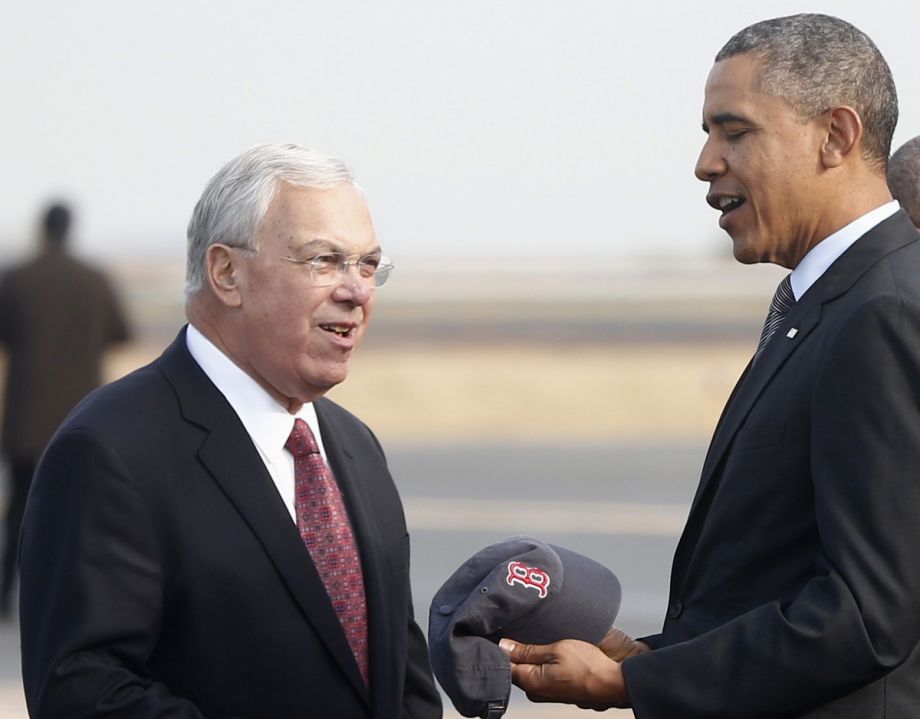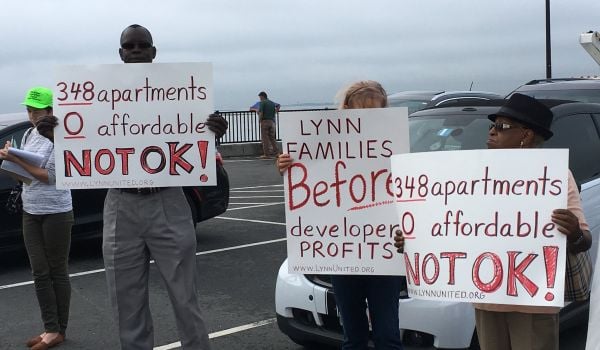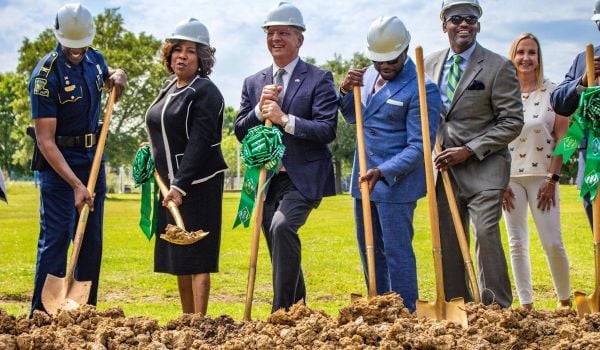During two decades as mayor of Boston, Thomas Menino obviously learned a few things about the job he held. Insiders in state politics and government dubbed him the “urban mechanic,” meaning that in order to get the engine running right, you have to know how to work the belts and hoses and electrical wires in tandem. Just substitute road building, public safety and garbage pickup for belts, hoses and wires.
Menino was big on sharing that information with his fellow mayors from around the world. Just before he died a year ago, the former Boston mayor released data from a Boston University study that he spearheaded, for which 70 U.S. mayors were surveyed about challenges they face, changing policies and relationships with other government agencies.
“I talk to mayors every day about some of the problems they may have, pertaining to education or other issues in their cities,” he told Next City contributor Alexis Stephens last October when the study was released. He called infrastructure “a quality of life issue, how your neighborhood looks,” explaining, “It’s having people come to the neighborhood and see a sidewalk that is fixed, a street that is in good condition, lighting that’s proper and trees that are trimmed.”
In a way, Menino can now continue speaking with mayors from around the world. Late last month, Boston University announced that it will be the curator of his archives, offering visitors a broad look at his public and private life. The archive will also be available online, but don’t expect just photographs of Menino handing out certificates of merit or cutting ribbons. The collection will be a history of how the process of addressing city problems and finding new ways of thinking permeated his governance in Boston.
“During his too brief tenure on our faculty, we saw his energy focused on building the Initiative on Cities at Boston University,” said Boston University President Robert A. Brown in a statement. “He proved to be as effective an academic leader and teacher as he was a mayor. Now students and other scholars can learn from him by studying his papers, watching him on video, and even seeing the amazing collection of mementos that accumulated in his office.”
The opening of this archive could be seen as just another ceremonial honorarium to a deceased civic leader. But it comes at a time when cities are being transformed by both data access and the increased importance of local governance over national governance. In short, in the United States and around the world, the big changes — both culturally and economically and politically — are being made at the city level, as the larger federal governments have become more ineffective and stuck in neutral.
And cities around the world are sharing the information of what works and what doesn’t, something Menino championed throughout his longtime tenure as Boston mayor.
“We are in the midst of a fundamental change throughout the world in how cities are viewed,” says Benjamin Barber, senior research scholar at City University of New York’s Center on Philanthropy and Civil Society. “The nation states have put all sorts of burdens on the cities, unfunded mandates the cities have to adhere to, and solving problems the federal government used to do. And while telling the cities what to do, the [federal governments] take their money away as well.”
“Local governments were always defined by the federal governments as regressive and parochial, and now that has flipped; it is the federal governments that are acting regressively and parochially,” continues Barber, who wrote If Mayors Ruled the World. “The old-style mayor who has the jurisdictional authority to solve problems pragmatically is proving to work globally right now. And there is an increased awareness that mayors sharing their information with each other enhances their ability to achieve those important goals.”
In many respects, cities are seeing that opening up their vaults of information — and sorting out and organizing what data they might have and need to get — is better than secretively trying to keep all of it stored haphazardly in a cardboard box in a locked closet. Making it more useful by using data overlays (combining property valuation changes with crime and health statistics, for example), can be a way to make more substantive changes based upon better evidence.
“The power vacuum coming from Washington and other country capitals is very real, and mayors around the world are now finding that they are much more responsible for converting the wishes of the populace to reality,” says Edward Frantz, a professor of history and the director of the Institute for Civic Leadership and Mayoral Archive at the University of Indianapolis, which opened in 2013. Frantz says researchers go to the archives to examine how Indianapolis was able to implement regional government starting in the 1970s, along with an approach to using sports as an economic development anchor.
“A whole host of issues — immigration, public transit, the rights of LGBT citizens, creating great places to live and work — are landing at the feet of cities, because the federal government doesn’t want to have to deal with them,” Frantz says.
Which, of course, brings the issues back to how Menino handled them. “He always used to tell us, that the things young people want are the same things old people want,” says Katharine Lusk, a policy adviser to Menino when he was mayor who’s now executive director of the Initiative on Cities.
Menino was quite aware that his experience was valuable, and perhaps that’s why his archives will hold value for urban planners and mayors worldwide.
“Some of the decisions you make, the public doesn’t know all of the facts — they only know some of the facts, and you have to make a decision based on all of the facts, and that’s when the public gets mad at you,” he told the Boston Globe as he left office in January 2014.
“You know the facts, and they only know that much,” Menino continued. “Be honest with the people, be honest with the press, and let your heart decide and your gut tell you what to do. Don’t let the special interests get to you.”











